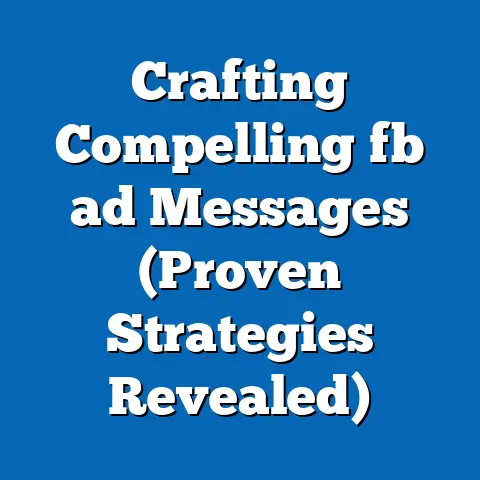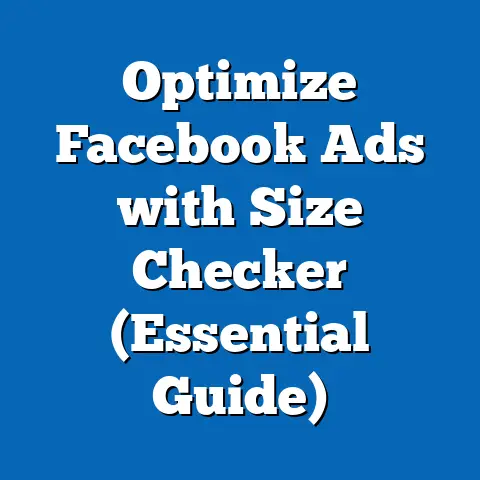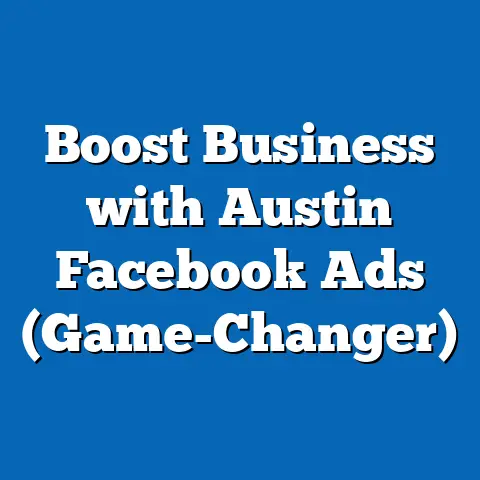Revive Facebook Disabled Ads Account (Expert Recovery Tips)
In a world where businesses pour countless hours and resources into crafting the perfect Facebook ad campaign, it’s almost poetic that the very platform designed to drive sales can just as easily slam the door shut on your advertising endeavors with a single click.
I’ve seen it happen time and again, and it’s a frustrating experience for any business owner.
You’re cruising along, ads are performing well, and suddenly, BAM!
Your account is disabled.
It feels like a rug pull, doesn’t it?
Understanding Facebook’s Advertising Policies
Before you even think about launching a Facebook ad campaign, it’s absolutely critical to familiarize yourself with Facebook’s extensive (and sometimes seemingly arbitrary) advertising policies.
Think of it as knowing the rules of the road before you get behind the wheel.
Ignoring these guidelines is like driving blindfolded – you’re just asking for trouble.
I remember one client who was completely baffled when their ad for a weight loss product was disapproved.
They were using scientifically-backed claims and focusing on healthy lifestyle changes, but the ad still got flagged.
Turns out, they were unknowingly violating Facebook’s policy against making claims about “achieving a perfect body” or creating a negative self-perception.
It was a subtle violation, but a violation nonetheless.
So, what are the common reasons why accounts get disabled?
Here are a few frequent culprits:
- Policy Violations: This is the big one.
Violations can range from promoting prohibited content (like illegal substances or weapons) to making misleading claims or using deceptive advertising practices. - Suspicious Activity: Facebook’s algorithms are constantly on the lookout for unusual activity that could indicate a hacked account or fraudulent behavior.
This could include sudden changes in ad spend, unusual targeting, or logging in from multiple locations in a short period of time. - Ad Disapprovals: A high number of disapproved ads can raise red flags and lead to account suspension.
Even if you eventually get the ads approved, the initial disapprovals can damage your account’s reputation. - Circumventing Systems: Trying to bypass Facebook’s ad review process or using tactics to avoid detection of policy violations is a surefire way to get your account disabled.
- Negative User Feedback: While less common, consistently receiving negative feedback on your ads (e.g., users hiding ads or reporting them as spam) can negatively impact your account standing.
Understanding the types of content that are typically flagged is crucial.
Here are a few examples:
- Health and Wellness Claims: Be extremely careful about making claims related to health, weight loss, or medical conditions.
Facebook has strict rules about unsubstantiated claims and misleading information. - “Get Rich Quick” Schemes: Anything that promises unrealistic financial gains or guarantees success is likely to get flagged.
- Sensitive Topics: Be mindful of advertising related to politics, religion, or social issues.
Facebook has specific policies in place to prevent misinformation and manipulation in these areas. - Personal Attributes: You cannot target users based on their personal attributes like race, ethnicity, religion, sexual orientation, or health conditions.
This is considered discriminatory and a violation of Facebook’s policies. - Copyright Infringement: Using copyrighted images, music, or content without permission is a serious violation.
Takeaway: Before launching any campaign, take the time to thoroughly review Facebook’s advertising policies.
It’s an investment that can save you a lot of headaches (and lost revenue) down the road.
Immediate Steps to Take After Your Account is Disabled
Okay, the worst has happened.
You’ve received that dreaded notification: your Facebook ads account has been disabled.
Your heart sinks, your palms get sweaty, and you might even feel a little lightheaded.
I get it.
But panicking won’t solve anything.
It’s time to take action.
Here are the immediate steps you should take:
- Check Your Email: The first thing you need to do is check the email address associated with your Facebook account.
Facebook will typically send a notification explaining why your account was disabled.
This email might contain important details about the specific policy violation or suspicious activity that triggered the suspension. - Access the Facebook Business Help Center: The Facebook Business Help Center is your first port of call for guidance and resources.
You can find it by searching “Facebook Business Help Center” on Google or by navigating to it through your Facebook Business Manager.
The Help Center provides articles, FAQs, and troubleshooting guides that can help you understand the situation and figure out your next steps. - Remain Calm: I know it’s easier said than done, but staying calm is crucial.
Reacting emotionally or making rash decisions can actually make the situation worse.
Take a deep breath, assess the situation logically, and focus on gathering information. - Do NOT Create a New Account: This is a big one!
Creating a new account to circumvent the suspension is a major violation of Facebook’s policies and can lead to permanent bans.
Facebook is very good at detecting duplicate accounts, and trying to outsmart them will likely backfire. - Document Everything: Keep a record of all communications with Facebook, including emails, support tickets, and any other relevant information.
This documentation can be helpful if you need to escalate the issue or seek further assistance.
Takeaway: Don’t panic!
Check your email, access the Facebook Business Help Center, remain calm, and avoid creating a new account.
These immediate steps will set you up for a more effective recovery process.
Crafting a Solid Appeal
Once you’ve taken those initial steps, it’s time to craft a solid appeal to Facebook.
This is your opportunity to explain your situation, address any concerns, and demonstrate your commitment to adhering to Facebook’s policies.
Think of it as presenting your case to a judge – you need to be clear, concise, and persuasive.
The process of submitting an appeal is usually straightforward.
You can typically find a link to the appeal form within the notification you received from Facebook or through the Business Help Center.
Here are some expert tips on how to craft an effective appeal letter:
- Be Concise and Clear: Facebook’s support team processes a massive number of appeals every day, so it’s important to get straight to the point.
Clearly state the situation, explain why you believe the account was disabled in error, and outline the steps you’re taking to prevent future violations. - Provide Specific Details: Don’t just say “I didn’t do anything wrong.” Provide specific details about the ads in question, the targeting you were using, and any other relevant information that can help Facebook understand your situation.
- Acknowledge Possible Mistakes: Even if you believe you haven’t violated any policies, it’s often helpful to acknowledge that mistakes can happen and express your willingness to learn and improve.
This shows Facebook that you’re taking the situation seriously and are committed to being a responsible advertiser. - Demonstrate a Commitment to Facebook’s Policies: Emphasize your commitment to adhering to Facebook’s advertising policies in the future.
Explain the steps you’re taking to ensure compliance, such as reviewing the policies regularly, implementing stricter ad review processes, or seeking guidance from Facebook’s support team. - Be Polite and Professional: Even though you’re likely frustrated, it’s important to remain polite and professional in your appeal.
Attacking or blaming Facebook will only hurt your chances of getting your account reinstated. - Include Supporting Documentation: If you have any supporting documentation that can help your case, include it with your appeal.
This could include screenshots of your ads, invoices for ad spend, or any other relevant information.
I once helped a client who had their account disabled due to a misunderstanding about Facebook’s policy on lead generation ads.
They were collecting leads for a real estate business, but their ad copy was unintentionally misleading.
In their appeal, they acknowledged the issue, explained how they had revised their ad copy to be more transparent, and provided screenshots of the updated ads.
Facebook reinstated their account within 24 hours.
Takeaway: Crafting a solid appeal is crucial for getting your account reinstated.
Be concise, clear, provide specific details, acknowledge possible mistakes, demonstrate a commitment to Facebook’s policies, and be polite and professional.
Utilizing Facebook’s Resources
Facebook offers a variety of resources to help advertisers, including the Business Help Center, community forums, and direct support options.
Knowing how to navigate these resources effectively can significantly increase your chances of account recovery.
The Business Help Center is a treasure trove of information.
You can find answers to common questions, troubleshooting guides, and detailed explanations of Facebook’s advertising policies.
Take the time to explore the Help Center and familiarize yourself with the resources available.
Community forums can also be a valuable source of information and support.
These forums are often populated by experienced advertisers who have dealt with similar issues and can offer advice and guidance.
However, be cautious about relying solely on information from community forums, as the advice may not always be accurate or up-to-date.
For more complex issues, you may need to contact direct support.
Facebook offers different levels of support depending on your advertising spend.
If you’re a high-spending advertiser, you may have access to a dedicated account manager who can provide personalized assistance.
Navigating these resources effectively requires patience and persistence.
Be prepared to spend some time searching for the information you need and don’t be afraid to ask for help.
Takeaway: Facebook offers a variety of resources to help advertisers.
Utilize the Business Help Center, community forums, and direct support options to increase your chances of account recovery.
Prevention Strategies for the Future
Once you’ve successfully recovered your account, it’s crucial to implement strategies to prevent future issues.
Learning from your mistakes and taking proactive steps to ensure compliance with Facebook’s policies will save you a lot of headaches down the road.
Here are some expert tips on how to avoid future account issues:
- Regularly Review Facebook’s Ad Policies and Updates: Facebook’s advertising policies are constantly evolving, so it’s important to stay up-to-date on the latest changes.
Make it a habit to review the policies regularly and pay attention to any updates or announcements from Facebook. - Implement Best Practices for Ad Content and Targeting: Follow best practices for creating engaging, relevant, and compliant ad content.
Avoid making misleading claims, using deceptive tactics, or targeting users based on sensitive attributes. - Establish a Backup Plan for Ad Campaigns: Don’t put all your eggs in one basket.
Diversify your advertising efforts by exploring other platforms, such as Google Ads, LinkedIn Ads, or Twitter Ads.
This will ensure that you’re not completely reliant on Facebook and can continue to reach your target audience even if your account is temporarily suspended. - Keep a Close Eye on Account Activity: Monitor your account activity regularly for any suspicious behavior.
This includes checking your ad spend, reviewing your targeting, and monitoring user feedback on your ads. - Use Facebook’s Ad Preview Tool: Before launching any ad, use Facebook’s ad preview tool to see how it will look to users.
This can help you identify potential issues and ensure that your ad is compliant with Facebook’s policies.
Takeaway: Preventing future account issues requires a proactive approach.
Regularly review Facebook’s ad policies, implement best practices for ad content and targeting, establish a backup plan for ad campaigns, and keep a close eye on account activity.
Success Stories and Case Studies
Hearing about others who have successfully recovered their disabled accounts can provide hope and inspiration.
Here are a few examples of businesses that have navigated this challenge and come out on top:
- The E-commerce Startup: A small e-commerce startup had their account disabled after accidentally violating Facebook’s policy on intellectual property.
They were using images of a popular cartoon character in their ads without obtaining the necessary licenses.
After realizing their mistake, they immediately removed the infringing images and submitted an appeal to Facebook, explaining the situation and demonstrating their commitment to respecting intellectual property rights.
Facebook reinstated their account within 48 hours. - The Local Restaurant: A local restaurant had their account disabled due to a misunderstanding about Facebook’s policy on alcohol advertising.
They were promoting a special on alcoholic beverages, but their ad copy was not compliant with Facebook’s guidelines.
After reviewing the policy, they revised their ad copy to be more responsible and submitted an appeal to Facebook, explaining the changes they had made and promising to adhere to the guidelines in the future.
Facebook reinstated their account within 24 hours.
These success stories highlight the importance of taking responsibility for your actions, demonstrating a commitment to Facebook’s policies, and providing clear and concise information in your appeal.
Takeaway: Success stories can provide hope and inspiration.
Learn from the experiences of others who have successfully recovered their disabled accounts.
Conclusion: Reaffirming the Importance of Resilience
Dealing with a disabled Facebook ads account can be incredibly frustrating, but it’s important to remember that it’s not the end of the world.
With the right approach, you can often get your account reinstated and get back to advertising on Facebook.
The key is to remain calm, gather information, craft a solid appeal, utilize Facebook’s resources, and implement prevention strategies for the future.
And most importantly, be resilient.
The world of digital marketing is constantly changing, and challenges are inevitable.
But by learning from your mistakes and adapting to new situations, you can overcome any obstacle and achieve your advertising goals.
I’ve seen countless businesses bounce back from account suspensions and go on to achieve great success on Facebook.
It’s a testament to the power of perseverance and the importance of staying informed and adaptable.
So, don’t give up!
Keep learning, keep experimenting, and keep striving for success.
Your Facebook advertising dreams are still within reach.






